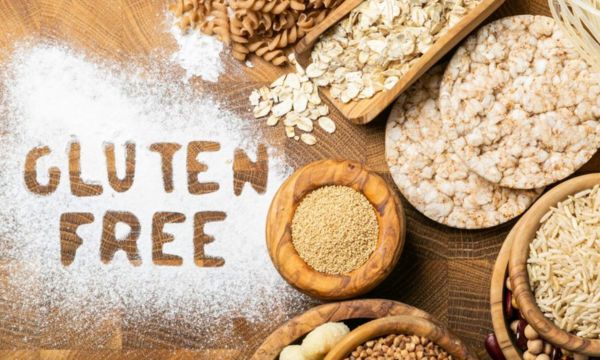Exploring Dietary Fats for Better Health
In the nutrition world, fat is seen as both a bad and a good thing. Fat has long been seen as the enemy because it can lead to weight gain and other health problems. But new scientific discoveries complicate the situation. Not all fats are the same, and understanding the different types of fats and their roles in the body is important for your health. In this in-depth look at dietary fats, we’ll learn how to distinguish between healthy fats and bad fats, and how they fit into a balanced diet.
How to Understand Dietary Fat?
Fat, also called lipids, is a type of protein that the body needs to function properly. They are a concentrated source of energy and are necessary for absorbing fat-soluble vitamins (A, D, E and K), protecting organs, keeping cell membranes in good condition and keeping body temperature stable. There are many types of fats in food, each with a different chemical composition and different effects on health.
1. Saturated Fats: The Notorious Ones
Saturated fat is solid at room temperature and is commonly found in animal products such as meat, butter, cheese and dairy products. They have long been linked to a higher risk of heart disease and high cholesterol. Recent research shows that not all saturated fats are equally bad for your health, and that their impact on your health depends on where they come from.
2. Unsaturated Fats: The Heart-Healthy Heroes
Unsaturated fats include monounsaturated fats and polyunsaturated fats, which are liquid at room temperature and are mainly found in vegetable oils, nuts, seeds, avocados and oily fish. These fats are known to help protect the heart. Olive oil and bananas are both good sources of monounsaturated fats, which help lower bad cholesterol levels. Polyunsaturated fats, such as omega-3 and omega-6 fatty acids, are important for heart health, brain health and reducing inflammation.
3. Trans Fats: The Cunning Criminal
Hydrogenation is the process of converting liquid oil into solid fat. This is how trans fats are made. They are found in many prepared foods, fried foods, baked goods and margarine-based foods. Trans fats are especially harmful because they increase bad cholesterol (LDL) and decrease good cholesterol (HDL). This increases the risk of heart disease. Because trans fats are harmful to health, many countries have banned or restricted their use in processed foods.
How to Understand the Role of Omega Fatty Acids?
Omega-3 and Omega-6 fatty acids are essential polyunsaturated fats. This means that the body cannot produce them itself and must get them from the diet. These fatty acids are important for health in many ways:
1. Omega-3 Fatty Acids: Good for the Brain and Heart
Omega-3 fatty acids help the brain because they are mainly found in fatty foods such as salmon, walnuts and flax seeds. They are important for brain function, mental health and reducing the risk of diseases that damage nerve cells. Omega-3 fatty acids also have anti-inflammatory properties, which can reduce the risk of heart disease and blood pressure and keep your heart healthy.
2. Omega-6 Fatty Acids: Balance and Inflammation
Omega-6 fatty acids are found in oils such as soy, corn and sunflower oil and are important for normal growth and development. But consuming too much omega-6 compared to omega-3 can lead to inflammation in the body. Consuming the right amount of omega-3 and omega-6 fatty acids is important for overall health. This shows how important a varied and balanced diet is.
How to Choose Healthy Fats?
When adding fat to your diet, it’s important to make choices based on what you know so you can reap the health benefits while reducing your risks:
1. Choose the Frying Oil that Suits You
Choose heart-healthy oils and salad dressings, such as olive oil, avocado oil and coconut oil. These oils are rich in monounsaturated fats and have a high burning point, making them suitable for various preparations.
2. Eat Oily Fish as Part of Your Diet
Omega-3 fatty acids are abundant in oily fish such as salmon, mackerel and sardines. Try to eat fish at least twice a week to keep your brain healthy, reduce inflammation and keep your heart healthy.
3. Snack on Nuts and Seeds
Nuts and seeds such as almonds, walnuts, chia seeds and flax seeds are rich in the healthy fats, fiber, vitamins and minerals that your body needs. They make a delicious snack and you can add them to soups, yogurt or salads to make them even more nutritious.
4. Beware of Processed Foods
Many processed foods, such as snacks, fast food and baked goods, contain dangerous amounts of saturated fats and trans fats. Reading food labels and choosing natural, unprocessed foods can help you reduce trans fats and improve the overall quality of your diet.
5. Moderation is important
Although healthy fats have many benefits, it is important to eat them in balance. Fat is high in calories, so eating too much fat can lead to weight gain. A healthy diet is based on portion control and getting the right amounts of fat and other important nutrients.
Conclusion:
Adding the right fats to your diet isn’t just about taste; It’s also about giving the body what it needs and helping the entire body stay healthy. Healthy fats are important for brain health, heart health and overall body balance. If people understand the difference between good and bad fats and make smart choices at the grocery store and at home, they can use dietary fats to improve their health. It’s not about avoiding fats, it’s about eating the right fats and making sure they help you live a healthy, happy and balanced life.
FAQs:
1. What are dietary fats and why are they important for our health?
Dietary fats, also known as lipids, are essential macronutrients that play a crucial role in energy production, nutrient absorption and overall body function. They are necessary for absorbing fat-soluble vitamins and supporting vital organs.
2. Are all fats bad for your health?
No, not all fats are bad. Healthy fats, such as monounsaturated and polyunsaturated fats found in foods like avocados, nuts and oily fish, are good for heart health, brain function and reduce inflammation. It is important to distinguish between healthy fats and unhealthy fats.
3. How do unhealthy fats such as trans fats affect our health?
Unhealthy fats, especially trans fats found in processed foods, can significantly increase the risk of heart disease by raising levels of bad cholesterol (LDL) and lowering levels of good cholesterol (HDL). They are also linked to a variety of health problems, so it is crucial to avoid them.
4. Does fat help with weight management?
Yes, healthy fats help with weight management. They provide a feeling of satiety and reduce overall calorie intake. Additionally, they support metabolism and energy levels, making it easier to maintain a healthy weight when consumed in moderation.
5. What are the best sources of healthy fats? How can you include them in your diet?
Healthy fats can be found in foods such as avocados, olive oil, oily fish, nuts and seeds. These can be incorporated into the diet through salads, smoothies, cooking and snacks. Watching portion sizes and choosing natural, unprocessed sources are essential to reaping the benefits of healthy fats.
 Living Gluten-Free: A Comprehensive Guide
Living Gluten-Free: A Comprehensive Guide
Gluten-free living has gone from being the only option for a small group of people to being […]
More Understanding Daily Nutritional Needs
Understanding Daily Nutritional Needs
With all the nutritional recommendations out there, it can be difficult to figure out what to eat […]
More Going Vegan: What You Need to Know
Going Vegan: What You Need to Know
Veganism is not just a choice about what to eat; It’s also a commitment to a mindset […]
More